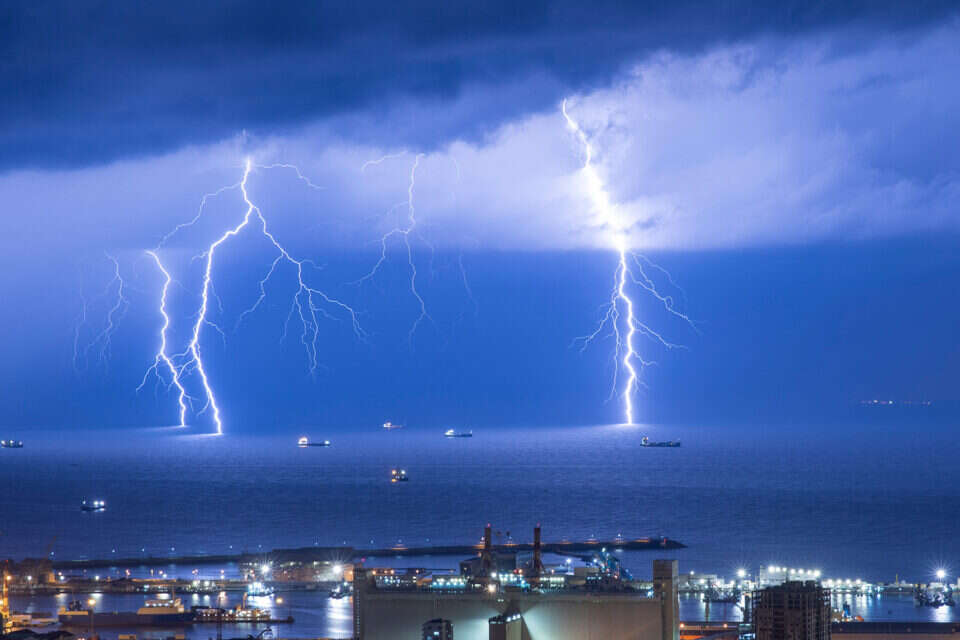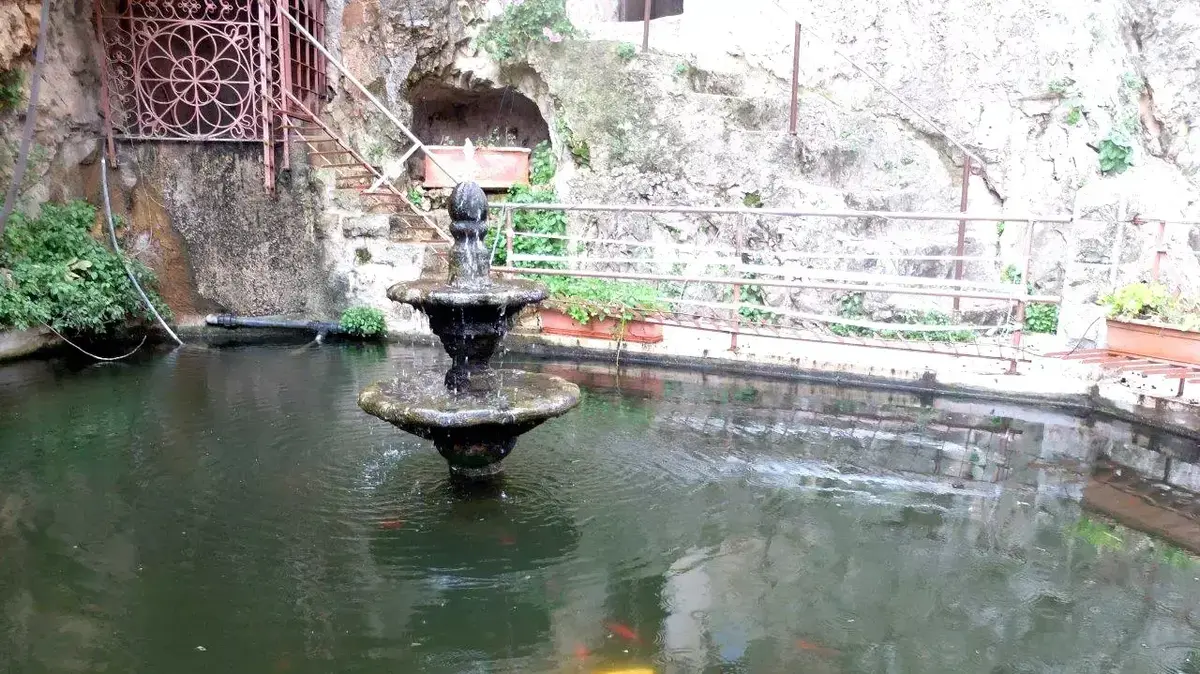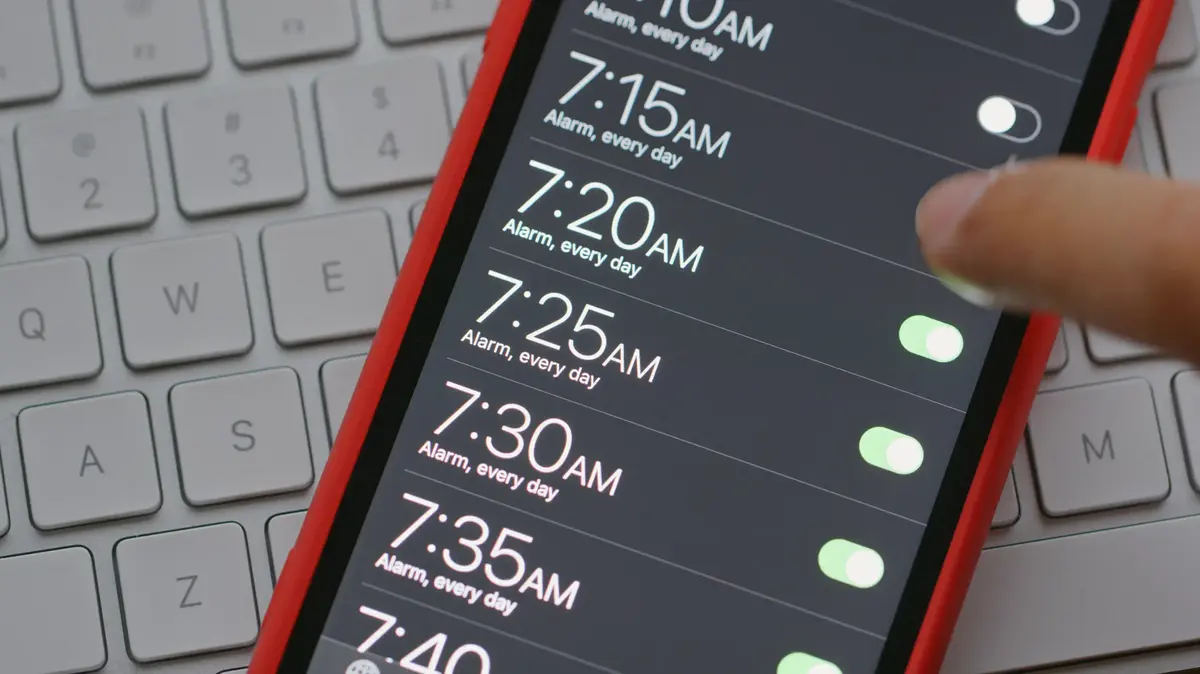Turn on lights even during the day, and be doubly careful at night
Drivers, please note: from Monday onwards, the obligation to turn on the car lights on long-distance roads will also take effect again.
This obligation, which applies to all types of vehicles, is valid until March 31 next year.
The shift to winter time is, of course, leading to greater driving in the dark - and, accordingly, the danger of being involved in a car accident is growing.
In winter, weather and road conditions are more difficult - visibility is limited, roads are slippery and wet, vehicle systems do not behave as expected, and it is more difficult to spot pedestrians.
Therefore, drivers are required to be doubly careful.
Does early sunset in winter time increase the risk of travel?
From data from the Green Light Association, based on an analysis of data from the Central Bureau of Statistics, the answer seems to be yes.
When looking at the most dangerous hours on the roads, where the largest number of fatal accidents were recorded, it can be seen that last year the most people (25) were killed between 21:00 and 20:00.
In second place in the table of the most dangerous hours - 18: 00-17: 00.
Motorcycle rider in the rain, Photo: Gideon Markowitz
For the winter, it is important to check the integrity of all vehicle systems in an authorized garage.
It is important to check in particular the integrity of the steering wheel, brakes, wipers, water sprays and headlights, and of course the heating and defrosting systems.
Have you been vaccinated against corona? You should also get vaccinated against the flu
The health care system is preparing for the winter of "twin-imaging", in which we will deal with two epidemics side by side - on the one hand corona, on the other flu.
Almost a million Israelis have already been vaccinated against influenza, and last year - in part because of social alienation and closure measures - no influenza was recorded in Israel at all.
However, given the fact that this year the economy is open, there is growing concern that we will once again see flu in the winter.
The report of the Center for Disease Control at the Ministry of Health shows that so far, with routine monitoring carried out in hospitals, 15 cases of influenza have been detected. However, among those who turn to clinics, no such cases have been identified.
Vaccinated against influenza, Photo: No credit
By mid-September, some 878,000 Israelis had been vaccinated against influenza.
The Ministry of Health has ordered a record amount of about 4 million vaccine doses this year, so there is no fear of a shortage of vaccines.
An examination of the proportion of those vaccinated against influenza by division of health funds reveals that Clalit has so far vaccinated more than half a million people, of whom 45% of the target group aged 65 and over, and 4% aged six months to 12;
So far, 220,000 people have been vaccinated at Maccabi, of which 86% are from the target groups;
At Meuhedet, we have so far vaccinated about 110,000 insured persons - 38% of the adults, more than a quarter of the chronic patients, 13% of the pregnant women and 2.5% of the children;
And nationally we vaccinated 48,000 people.
Among those aged 65 and over, we have already been vaccinated about a third.
"It is clear to me that this year, in the absence of restrictions and closures, there will be flu," says Dr. Jan Miskin, a family medicine and infectious disease specialist at Clalit Health Services. Going to confuse us.
A corona patient who also catches the flu at the same time?
I would not want to be in this situation.
"I recommend to anyone who can complete corona vaccines, and I recommend that everyone get vaccinated against the flu."
The dilemma of floods: between caution and the opportunity to photograph nature at its peak
This is a picture that has almost become synonymous with the Israeli winter: streams - especially in the south of the country and in the Dead Sea area - are flooded every time.
Is there cause for concern?
Depends on who you ask: While professionals want to be careful, some travelers insist that panic is unjustified, and that it is first and foremost a spectacular natural phenomenon.
"Preparations for winter are made every year, immediately after the last rain," explains senior engineer Igor Kleiner, deputy director of the southern region of Netivei Israel's operations and maintenance division.
"The work is done under the scorching sun, and also at night while most of the people of Israel are asleep, to ensure the highest level of safety. During a flood. "
Flooding in Ein Avdat, Photo: Dudu Greenspan
On the other hand, the director of tourism in Mitzpe Ramon, Yoash Limon, goes against the excessive fears of the floods and believes that the strict approach may also harm the movement of travelers in the area.
"You need to calm the pressure and hysteria a bit," he emphasizes, "Guys, are you crazy? In Ramon Crater and Ein Avdat, the floods are beautiful and impressive, and they are part of nature. When the Paran River flows, huge desert areas close; Half a Negev! Tourism is being harmed here. "
Of course, it is not only in the south that the problem of floods is encountered: the flooding of the Ayalon River in winter has become an integral part of the cold season.
Many remember the floods in the winter of 1992-1991, which closed the Ayalon lanes and stopped hundreds of vehicles.
The warnings of the experts and the State Comptroller did not prevent the phenomenon from recurring, albeit on a smaller scale, in 2003, 2013 and 2018.
The state is currently promoting a solution for collecting rainwater (a system for storing water that will prevent flooding of lanes), but it is not clear how reliable it is and how long it will take to complete it.
Get the little ones used to the new routine - and get ready for the mood
The transition to winter time can create difficulties for some families - especially among children, who are more sensitive to changing routines.
In the first week after moving the clock, the need arises to adapt to the new hours of sleep, and also to the darkness that precedes falling and can sometimes cause concern in the little ones.
"Winter is not just about moving the hands of the clock," explains Dalia Cohen, director of early childhood education programs at the National Community Center Society.
The mediation of the transition and the understanding that it is worth giving up the sandals in the coming months - may prevent arguments with the children who have become accustomed to what summer has to offer.
Therefore, take them to buy an umbrella, a coat and boots, so that they can take part in the preparation process. "
The solution for children: to implement change gradually, Photo: Yehoshua Yosef
The cold weather also often leaves the family at home, a situation for which, according to Cohen, "children especially lack the time to spend outside and play with friends. Therefore, we planned 'play dates' in friends' homes, and remember that Closed. "
Cohen adds that "in the winter, getting up in the morning and getting organized is more difficult. Do yourself a favor and reduce the stress by leaving more time to prepare. In general, you should talk to the children about the reasons for switching to winter time or daylight saving time. ".
And how should the little ones in the children be helped to cope with the new routine?
"Children may experience a change in mood due to the change in waking and sleeping times," Cohen explains. "Babies may even experience a kind of 'mini-jet.' .
The chance of power outages is very low - but not nil
The winter and its damage should not surprise the IEC at all.
Or as Oren Hellman, the company's vice president of service, puts it: "We have been dealing with winter for 100 years.
We are very organized and know what to check.
In the fall and spring we are strengthening the power generation units and power plants in anticipation of extreme weather damage.
We invest NIS 3 billion a year in strengthening the infrastructure. "
No less than they invest in routine maintenance, the IEC focuses on informing citizens and emphasizing safety regulations.
"Last week we launched a campaign that explains that our electricity network is very good, but there is not 100 percent - still, there are 70,000 power lines spread throughout Israel."
According to Hellman, Israel's position in the field of electricity network deployment is better than is customary in developed countries.
"With us, the consumer experiences three hours of power outages a year, including half an hour of proactive outages for repairs."
IEC employees make repairs in the snow, Photo: Archive, IEC
In the United States, according to data from the US Department of Energy, power outages average an average of four hours a year for all electricity consumers, including initiated outages and excluding unforeseen events such as disasters.
Participated in the preparation of the article: Shlomi Diaz, Meital Yasur Beit-Or, Ilya Yagurov, Dan Lavie, Noam (Devol) Dvir, Eran Bar-Tal and Ihali Yaakovi-Handelsman













